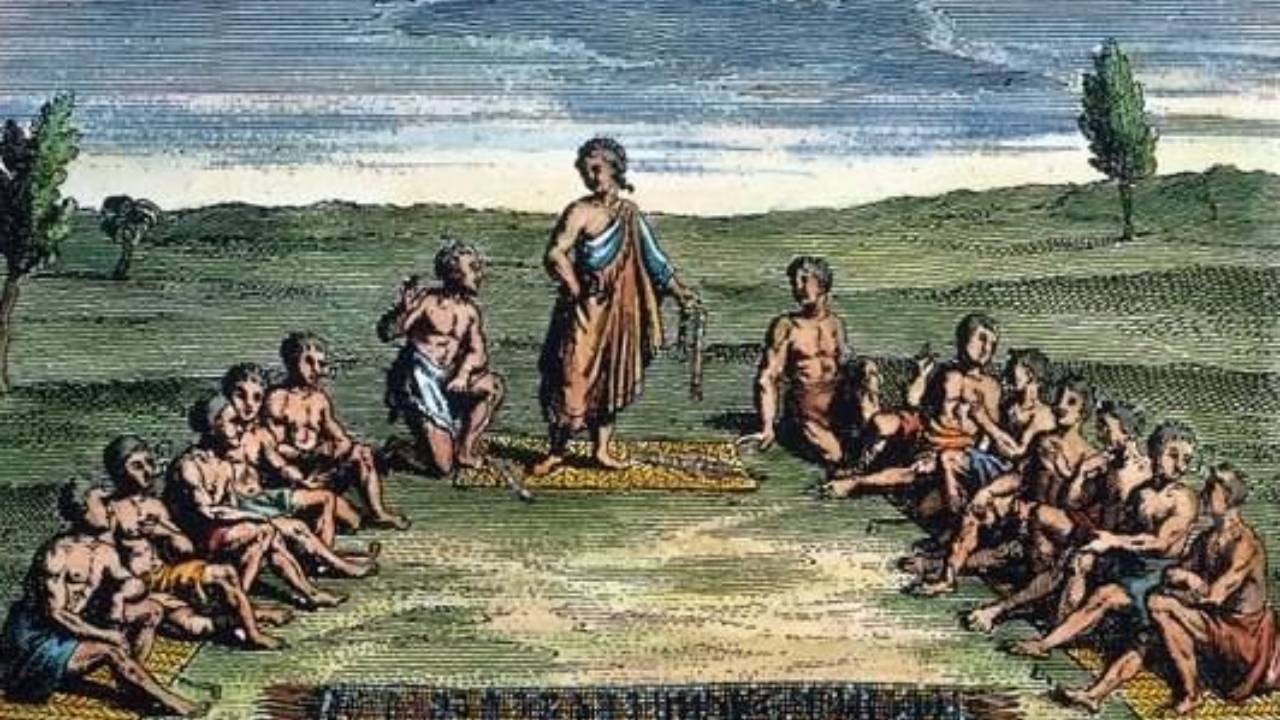
Curious about the Iroquois Confederacy, often revered for its sophisticated governance and rich cultural heritage? This Native American confederation, known for uniting the Mohawk, Oneida, Onondaga, Cayuga, Seneca, and later the Tuscarora, has fascinated historians and culture enthusiasts alike. The Iroquois played a pivotal role in shaping the social, political, and economic landscapes of North America long before European settlers arrived. Their democratic principles even inspired some aspects of the United States Constitution. With a deep respect for nature and a complex societal structure, their legacy is a testament to the ingenuity and resilience of indigenous peoples. Ready to delve into the intriguing world of the Iroquois? Let's uncover 14 captivating facts about this influential tribe, shedding light on their contributions, traditions, and way of life that continue to echo through time.
Key Takeaways:
- The Iroquois Confederacy, made up of six tribes, had a democratic government and matrilineal society, influencing American democracy and emphasizing unity and cooperation.
- The Iroquois' rich culture and spiritual beliefs, along with their contributions to modern society, continue to inspire social and environmental movements, promoting unity and sustainable practices.
The Iroquois Confederacy
The Iroquois, also known as the Haudenosaunee, formed a powerful alliance of tribes in North America. This confederacy played a significant role in shaping the history and culture of the region.
-
The Iroquois Confederacy, also called the Haudenosaunee or "People of the Longhouse," consisted of six tribes: Mohawk, Oneida, Onondaga, Cayuga, Seneca, and Tuscarora.
-
The Great Law of Peace was the Iroquois Confederacy's constitution, which established a democratic government long before the United States was founded.
Iroquois Society and Culture
The Iroquois had a rich culture and unique societal structure that influenced their daily lives and interactions.
-
Iroquois society was matrilineal, meaning descent and inheritance were traced through the mother's line.
-
Longhouses, large wood-structured homes, housed multiple families from the same clan, symbolizing unity and cooperation.
-
The Iroquois practiced a form of agriculture known as the "Three Sisters," cultivating corn, beans, and squash together for mutual benefit.
Iroquois Spiritual Beliefs
Spirituality played a central role in Iroquois life, with various rituals and beliefs shaping their worldview.
-
The Iroquois believed in a Great Spirit, a creator who was responsible for the world and everything in it.
-
They held seasonal ceremonies to honor the spirits and ensure successful harvests, hunting, and overall well-being.
Iroquois Influence on American Democracy
The Iroquois Confederacy's political system had a notable impact on the development of American democracy.
-
Benjamin Franklin admired the Iroquois Confederacy's democratic principles and used them as inspiration for the Albany Plan of Union.
-
The U.S. Constitution's system of checks and balances was influenced by the Iroquois' method of governance, which included a council of chiefs and a system of consensus.
Iroquois Warfare and Diplomacy
The Iroquois were skilled warriors and diplomats, often playing a crucial role in regional conflicts and negotiations.
-
The Iroquois engaged in the Beaver Wars during the 17th century, expanding their territory and influence through strategic warfare.
-
They formed alliances with European powers, such as the British and French, to strengthen their position and protect their interests.
Iroquois Contributions to Modern Society
The Iroquois have made lasting contributions to various aspects of modern society, from sports to environmental practices.
-
Lacrosse, a popular sport today, originated with the Iroquois, who played it as a means of training for war and resolving conflicts.
-
The Iroquois practice of sustainable agriculture and respect for nature has influenced modern environmental movements and conservation efforts.
-
The Iroquois' emphasis on community and cooperation continues to inspire contemporary social and political movements, promoting unity and collective well-being.
A Final Glimpse into Iroquois Legacy
Diving into the rich tapestry of the Iroquois tribe, we've uncovered layers of their enduring legacy. From their sophisticated political systems to their profound spiritual beliefs, the Iroquois have significantly shaped the cultural and historical landscape of North America. Their contributions, especially the Iroquois Confederacy, stand as a testament to the power of unity and diplomacy. As we reflect on their innovative agricultural practices and the pivotal role women played in their society, it's clear the Iroquois were far ahead of their time. Their stories, filled with wisdom, resilience, and respect for the natural world, continue to inspire and educate. By honoring their past, we keep the spirit of the Iroquois alive, ensuring their rich heritage continues to influence future generations.
Frequently Asked Questions
Was this page helpful?
Our commitment to delivering trustworthy and engaging content is at the heart of what we do. Each fact on our site is contributed by real users like you, bringing a wealth of diverse insights and information. To ensure the highest standards of accuracy and reliability, our dedicated editors meticulously review each submission. This process guarantees that the facts we share are not only fascinating but also credible. Trust in our commitment to quality and authenticity as you explore and learn with us.


